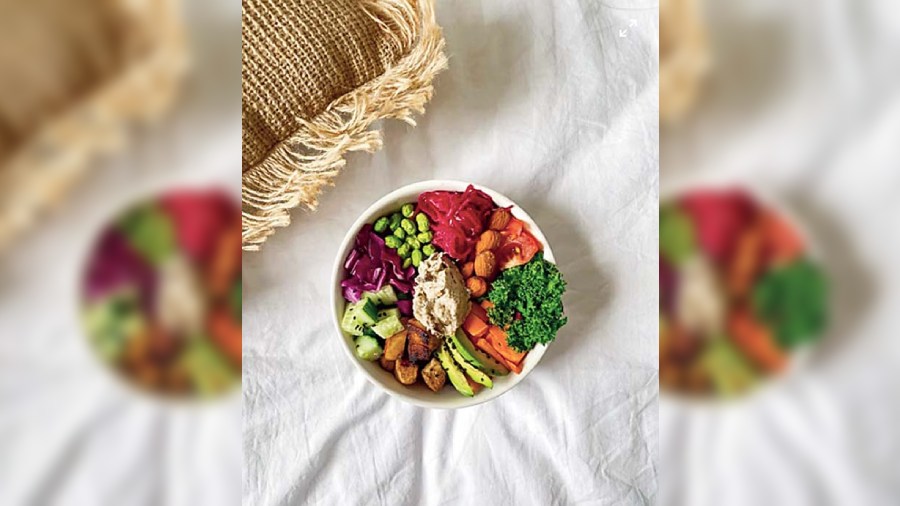As we were stepping into the new year, we were also hit by the newest variant of Covid-19, once again exposing our vulnerabilities, and re-emphasising the importance of keeping a healthy and strong immune system. Though we know that healthy eating will not magically ward off the virus, a nutritious diet rich in protein will definitely help, as we learn how to live with the virus rather than fight it.
Firstly, why is protein so important and how much do we need? We specifically need proteins in our diet for tissue repair, growth and maintenance. It’s extremely important for our hormones and immune system. Unless one has a specific medical reason to keep the protein intake low, most people need a bare minimum of protein consistently from their diets to maintain good health. The specific benefits of a higher protein diet include weight management, muscle growth, better immunity, increased strength, faster recovery and better cardiac health.
The amount of proteins required by one depends on a variety of factors such as age, weight, activity level, fitness goals, etc. While a bare minimum of 0.8g/kg of body weight per day is required by all, the requirement is higher for people who are active, pregnant or breastfeeding, above 65 years of age, athletes and people who want to build muscle mass, etc.
Now for someone who doesn’t eat meat and dairy, it’s common to wonder if they are getting enough proteins from other sources. Vegans or people following a plant based-diet often ponder over how much protein is enough or what are the right sources of plant-based proteins and how to make sure one is getting a sufficient amount of it. After all, most people are unfamiliar with vegan proteins and can’t really look beyond meat and dairy to meet their requirements.
Are plant-based proteins as good as animal proteins?
One common concern is whether animal protein is superior to plant protein. To address this, we need to realise that there are two major differences. Firstly, proteins are made of amino acids of which seven are non-essential, because our bodies can prepare them on their own and nine are essential (EAA) which our bodies can’t prepare and derives it from the food sources. Most animal proteins have adequate EAAs to meet all your protein needs, making them a complete protein, whereas plant proteins don’t necessarily contain all the EAAs, rendering them incomplete. Thus, it’s important to club different plant proteins and not rely on only one source to meet the requirements.
Secondly, the digestibility of proteins in plant foods are lower compared to the animal sources. Our digestive systems are usually sensitive to plant proteins and might not absorb the amino acids found in plant sources very well and thus, one needs to consume more protein to meet the requirements compared to people who eat animal products.
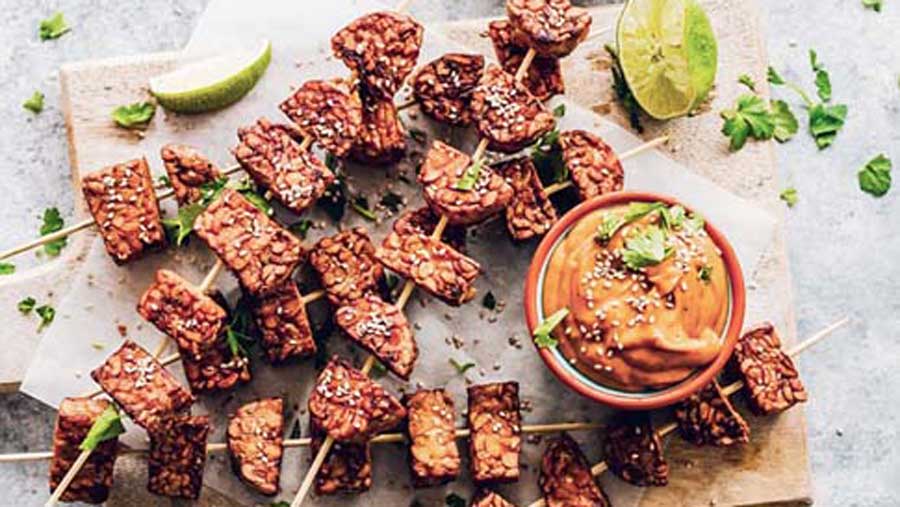
plant-based foods rich in protein
Soy products:
Even though soy has been the centre of many controversies because of its assumed effect on our hormones, and has attracted diametrically opposed opinions from experts, it has also been regarded as nutritional wonder by researchers and nutritionists owing to its high protein content.
Based on research, a reasonable amount (up to three servings a day) of unrefined soy products is absolutely fine to consume.
The following is the protein content per serving of soy sources:
• Tempeh: 19g/ 100g
• Tofu: 14.6g/ 100g
• Edamame: 11g/ 100g of steamed edamame beans
• Soy milk: 10g/ 300ml
• Miso: 2.5g/ 1tbsp of miso paste
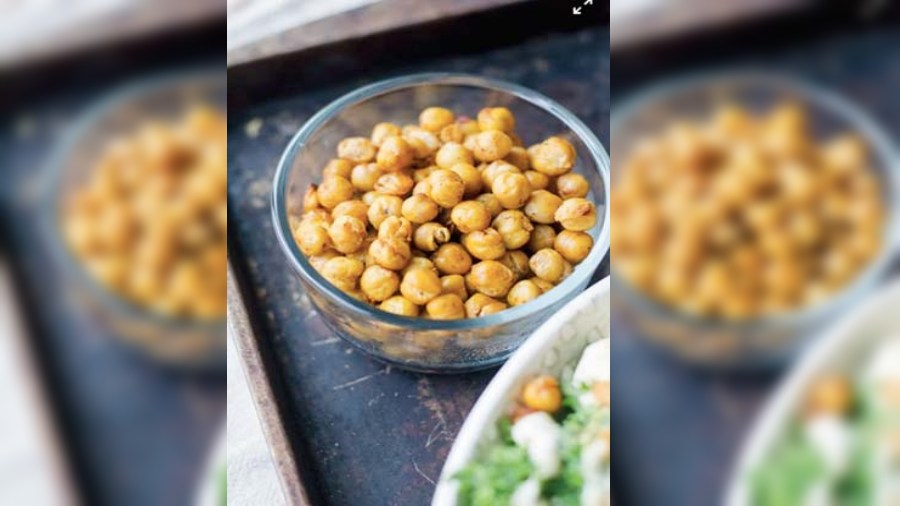
Pulses and legumes:
The protein content per serving (raw weight) of the most common pulses and legumes consumed In Indian families is as follows:
• Lentils: 10g/ 40g
• Black eyed peas: 7.5g/ 30g
• Chickpeas: 7g/30 g
• Kidney beans: 6g/30g
• Besan : 6g/ 30g
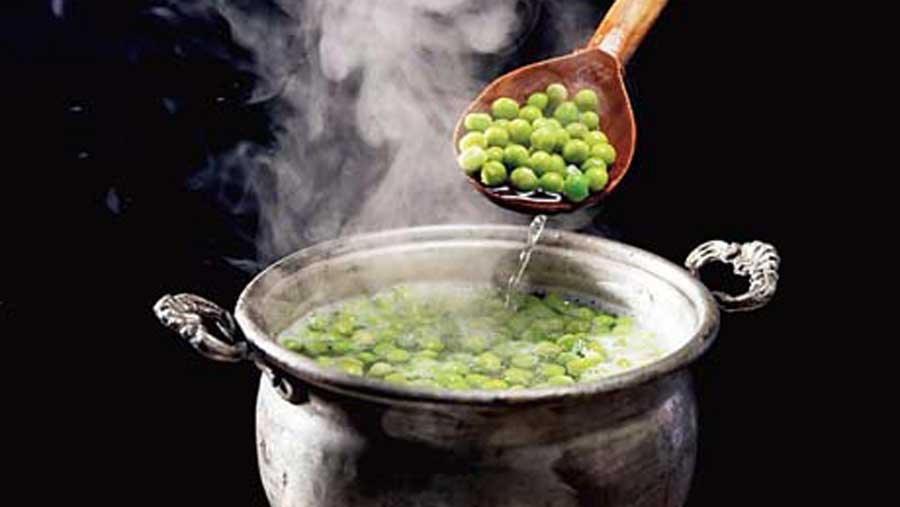
Peas:
Those who have digestive issues with beans and other legumes, might find peas slightly easier on the stomach and more digestible.
Protein content per serving:
• Green peas: 6g/ 4tbsp
• Dried peas: 6g/ 30g

Nutritional yeast:
This is basically deactivated yeast and provides an array of health benefits. It is extremely rich in proteins, good fats, vitamin B12 and fibre.
Protein content/ serving:
• 8g/1/4th cup or 15g
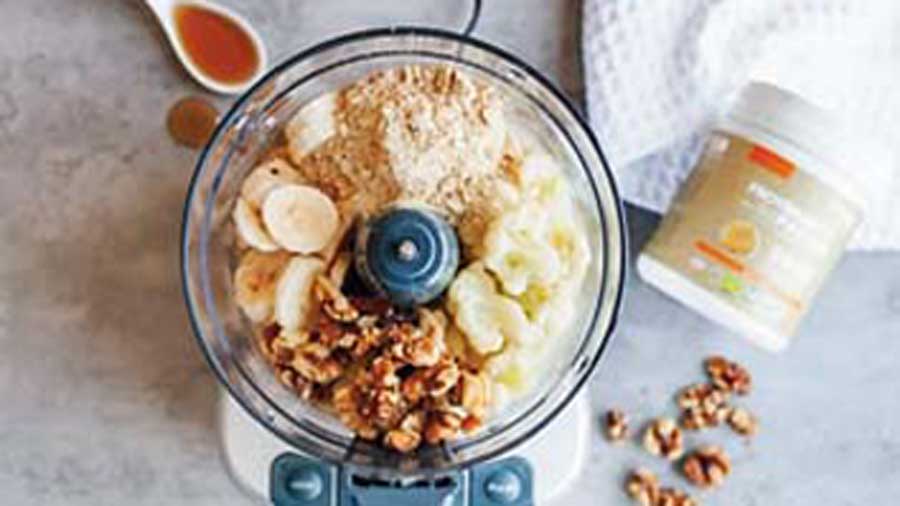
Plant-based protein powder:
It’s a very convenient option to achieve your protein goals and one can combine various blends to get a variety of different EAAs.
Protein content per scoop of different protein blends:
• Soy: 27g
• Pea: 23g
• Hemp: 22g
• Rice: 23g
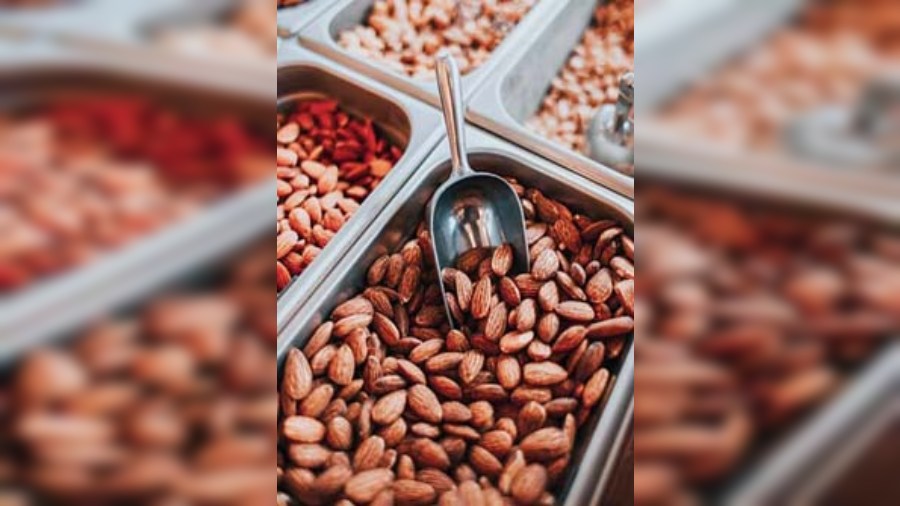
Nuts and seeds:
These are great protein sources for vegans and people following a plant-based diet.
Nuts protein in grams per serving (1/4th cup):
• Almonds: 7g
• Walnuts: 4.5g
• Pistachios: 6g
• Cashews: 5g
• Peanuts: 9.5g
Seeds protein in gms/per serving):
• Pumpkin seeds: 8.5g of protein/ 28g or a handful
• Sunflower seeds: 5.5g/ 28g or a handful
• Flax seeds: 5.2g/ 28g
• Sesame seeds: 4.8g/ 28g
• Chia seeds: 5g approx/ 2tbsp
Grains:
Some grains have a higher protein content than others and make up the foundation of a nutritious plant-based diet.
Protein in g per serving (50g raw weight) of different protein-rich grains:
•Oats: 8.45g
•Quinoa: 8.3g
•Amaranth flour: 7g
•Rag flour: 6.5g
•Buckwheat flour: 5g

Sister duo Neha Patodia and Nupur Arya founder of Nutrimend
Hacks to amp up your daily protein intake:
1. Switch to quinoa, amaranth or buckwheat flour for your rotis instead of using regular wheat flour. Buckwheat noodles or soba noodles can be an interesting and protein-rich addition to your diet.
2. Add ground flaxseed to your roti dough or just sprinkle it on your veggies or smoothies.
3. Have at least 1 glass of chia seed- infused water. Chia seeds pudding or smoothies with chia seeds could be a great protein-rich breakfast option.
4. A mix of different seeds could serve as a topping for salads, soups, pancakes and breakfast bowls. It can also be had as a mouth freshener post-meals.
5. Add a few tablespoons of dal while making soup, this will improve the consistency and increase its protein content.
6. Vegan cheese made using nutritional yeast can be consumed instead of the regular processed ones.
7. Nut milks and nut butters are a great replacement for dairy. A glass of almond milk before going to bed could be a great option. Including just 1tbsp of peanut butter in your daily diet can increase your protein intake by 4.5g per day.
8. At least 1 cup of cooked legumes must be included in the diet as they are rich in lysine, an amino acid that’s usually deficient in plant foods.
Nutrimend is a diet consultancy clinic founded by sister duo Neha Patodia and Nupur Arya
